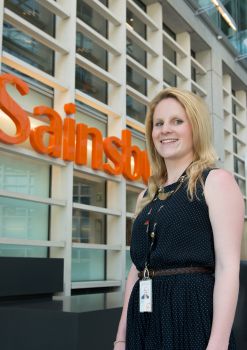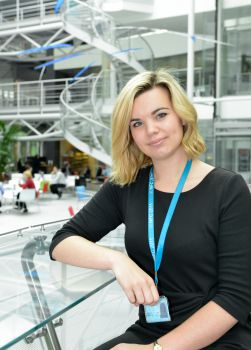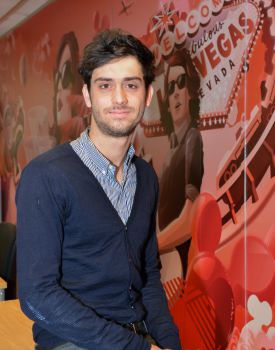University of Sussex business school boosts links with employers




The School of Business Management and Economics (BMEc) at the University of Sussex is strengthening ties with employers as student demand for employability skills and real workplace experience soars.
From a small-scale pilot in 2012, demand has rocketed. Ian Pierson, Placement Co-ordinator at BMEc said: “This year we have the highest number ever, with over 100 students seeking placements, which is more than double last year’s number.”
BMEc students are leading the way in making use of the University’s Sussex Choice initiative, which allows undergraduates studying any subject to apply for a placement with an external organisation.
Business-minded students are also boosting their chances of success by taking full advantage of the University’s Careers and Employability Centre employment preparation programmes, which are made available to all students from when they first arrive as freshers.
Claire Colburn, Senior Placements and Work Experience Officer at the Careers and Employability Centre, said BMEc students have taken up this opportunity in great numbers and with great enthusiasm.
She added that students from across the University had started following their BMEc colleagues’ lead. “We have seen an increase in student interest in placements across the University. As Sussex has strong links with a range of businesses and public-sector organisations, we’ve been able to find internship opportunities for our students across Britain and everywhere from Mexico and Canada to places in Africa, Asia and continental Europe.”
The extra demand is partly because of enthusiastic feedback from students returning from placements to do their finals. But Ian Pierson said it is also due to the work the University does supporting 'First Generation Scholars' – who are students from under-represented groups or modest-income backgrounds.
Sussex spends over £2 million a year boosting the employability of its First Generation Scholars. The cash goes on funded internship for students who are between the second and third years of their degrees.
Besides internships, First Generation Scholars, who now account for roughly half of all undergraduates at Sussex, receive extra coaching in leadership, careers and studying. They are also given work-placement and work/study opportunities and act as mentors in schools supporting children from similar backgrounds.
The University’s placements last a minimum of 40 weeks and students must be paid at least the upper national minimum wage and be given graduate level work to do.
But BMEc and the Careers and Employability Centre have also begun working with the Catalyst Scheme, run by Sussex Innovation Centre (SInC), which is more flexible. The scheme lets small companies and start-ups benefit from the students’ skills for shorter periods of time. These students are on the SInC Catalyst pay roll and work on a short-term basis with a number of different employers in the Innovation Centre over the course of their placement year.
“We want to use greater employer engagement so that all of our students, and not just those who opt to go on placements, will gain better employability skills,” said Ian Pierson.
BMEc is planning to develop its work with employers over the coming year, to increase dialogue and engagement across the breadth of the School’s activities, from curriculum development and delivery to collaborative research. The co-operation will also maximise opportunities for students to gain employability skills and experience.
The School also plans to build up its programme of employers invited to give guest lectures on campus and to develop short work-place projects for students to undertake during vacations or on a part-time basis alongside their studies.

